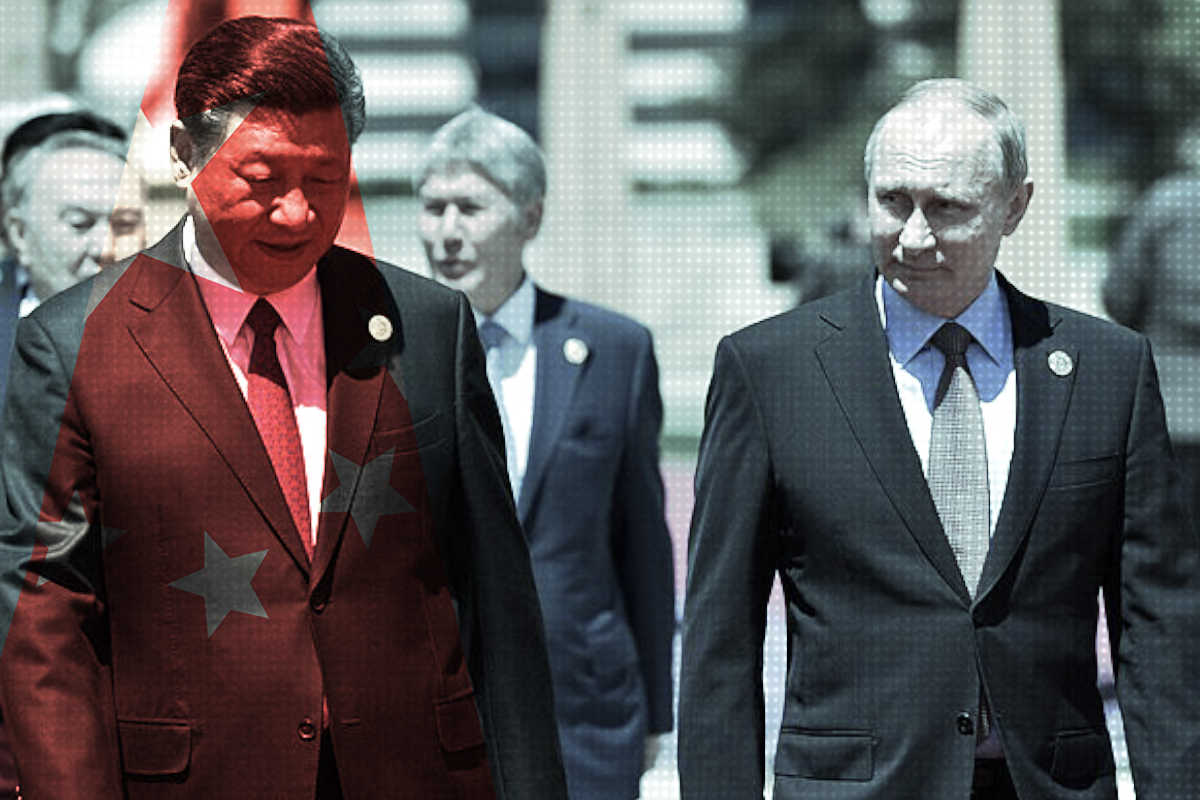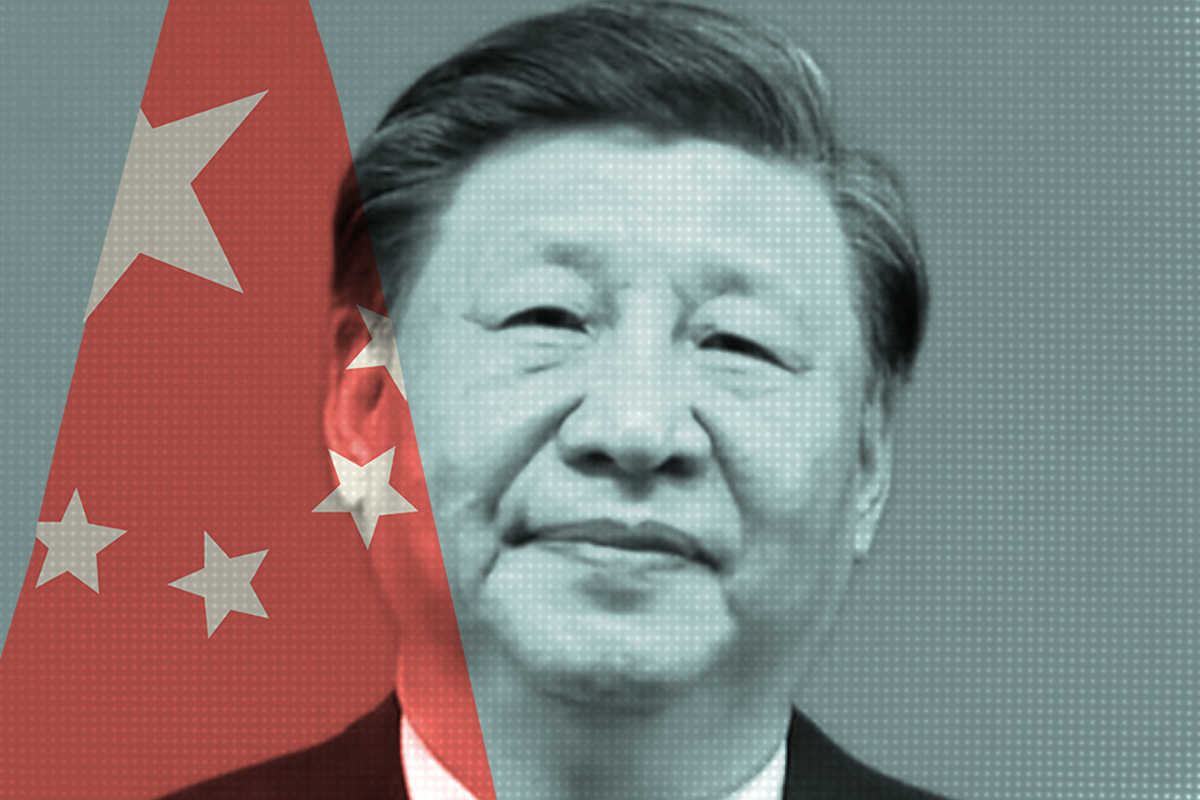Speculation over the Wang Lijun (王立军) case continues to fly across Chinese domestic social media today. Users of every description, including prominent journalists and academics, are sharing purported inside information — the possible involvement, for example, of a wealthy Chongqing businessmen who has now, some suggest, fled overseas.
Foreign media reports are being actively shared on social media like Sina Weibo and QQ Weibo, some with screenshot images that might stand a better chance of eluding censors. For example, many versions of a bilingual transcript of questions answered on Wang Lijun by US state department spokesperson Victoria Nuland, who said, for example: “Wang Lijun did request a meeting at the US consulate general in Chengdu earlier this week . . . He did visit the consulate and he later left the consulate of his own volition.”
In stark contrast to Chinese social media, where as of Friday afternoon the keyword “Wang Lijun” remained unblocked, Chinese traditional media have been on lockdown.
According to the WiseNews database of Chinese newspapers, 37 articles on the Wang Lijun case appear in China’s press today — all of these, without a single exception, are verbatim versions of the official news release issued by Xinhua News Agency, which reads:
Ministry of Foreign Affairs Spokesman Answers Questions on the Wang Lijun Incident
Xinhua News Agency, Beijing, February 9 — The spokesperson office of the Ministry of Foreign Affairs said in response to questions on the 9th that Chongqing Vice-Mayor Wang Lijun entered the U.S. Consulate in Chengdu on February 6, and left after remaining there for one day. Relevant departments are now investigating this [matter].
The uniformity of today’s coverage of the China certainly suggests there has been a directive from the Central Propaganda Department instructing media to use only information from Xinhua (and perhaps the People’s Daily).
But how have papers dealt with the niggardly material available from Xinhua?
Newspapers, both Party and commercial, from different regions actually used the Xinhua release in slightly different ways. Many put the news deep in inside pages, giving it very subdued treatment. But 8 of the 37 newspapers actually did put the story on page 1. Three of these were commercial spin-offs of local Party newspapers, four were local Party newspapers, and the last, China Economic Times, is a paper published by the Development Research Center under China’s State Council:
Changjiang Daily (长江日报)
First Financial Daily (第一财经日报)
Lanzhou Morning Post (兰州晨报)
Beijing Morning Post (北京晨报)
Shantou Daily (汕头日报)
Qingdao Daily (青岛日报)
Jinan Daily (济南日报)
China Economic Times (中国经济时报)
The Lanzhou Morning Post put the Wang Lijun story in a box to the right-hand side of the page, just to the right of a photograph of a girl playing in the snow.
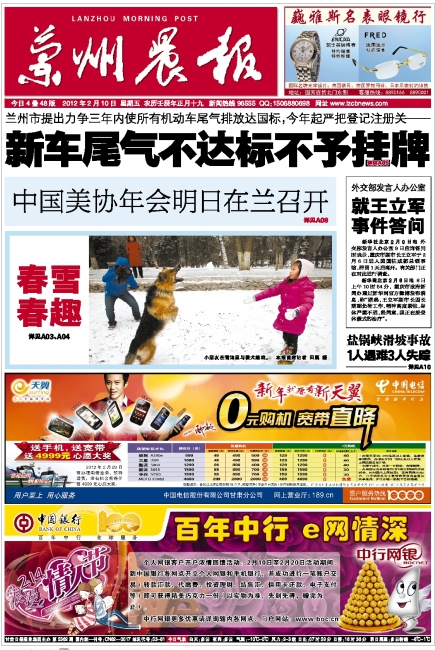
[ABOVE: The Xinhua release on Wang Lijun makes the front page of the February 10, 2012, edition of the Lanzhou Morning Post.]
The Beijing Morning Post, a commercial spin-off of the city’s official Beijing Daily, ran the story in a box under the main photograph, of Canadian Prime Minister Stephen Harper on a visit to China.
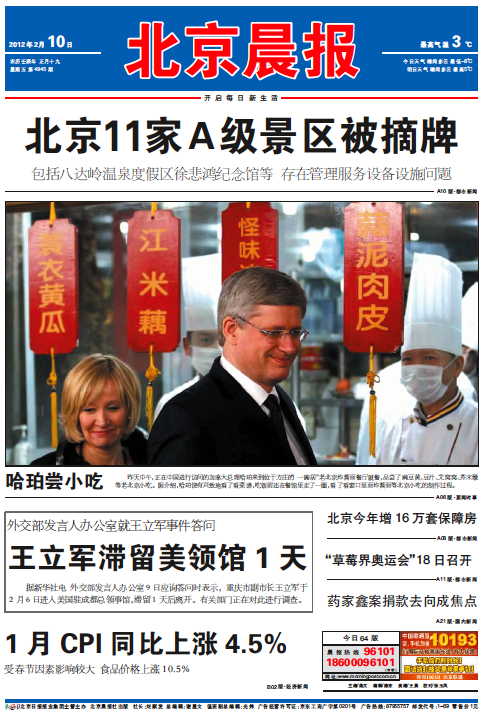
[ABOVE: The Xinhua release on Wang Lijun makes the front page of the February 10, 2012, edition of the Beijing Morning Post.]
Qingdao Daily, the official Party mouthpiece of the Qingdao leadership, gave the story a tiny box at the very bottom of its front page, like the other pages above with no accompanying photo.
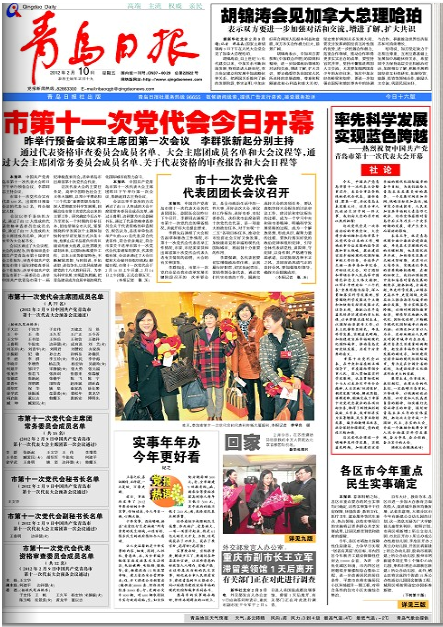
[ABOVE: The Xinhua release on Wang Lijun makes the front page of the February 10, 2012, edition of Qingdao Daily.]
But Qingdao Daily‘s commercial spin-off, Qingdao Morning News also ran the story on the front page, this time with a photo of Wang Lijun. It should be noted that the Qingdao Morning News front-page article does not appear in the WiseNews database, so there may be other newspapers as well that ran the story but are not shown here.
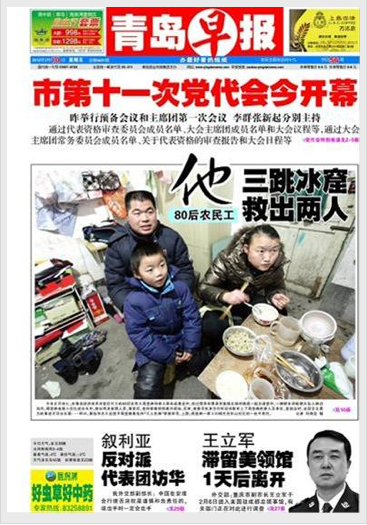
[ABOVE: The Xinhua release on Wang Lijun makes the front page of the February 10, 2012, edition of Qingdao Morning News, with a photo of Wang Lijun (at bottom).]
Guangzhou’s commercial New Express newspaper made no mention of the story on its front page, but did give it relatively prominent play on page 31, the China current affairs section.
The bold headline at the New Express reads: “Chongqing Deputy Mayor Wang Lijun Spent One Day in the American Consulate.” The subhead below adds: “Ministry of Foreign Affairs Says Relevant Departments are Investigating This.” To the right is the full Xinhua News Agency release.
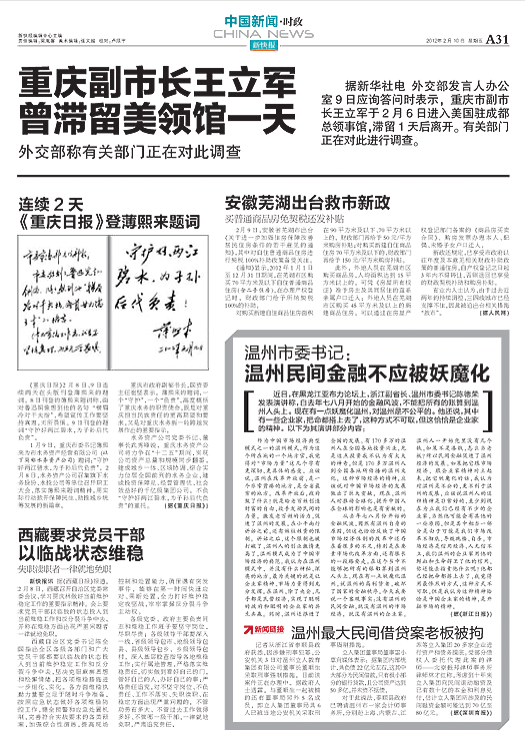
[ABOVE: The Xinhua release on Wang Lijun makes page 31 of the February 10, 2012, edition of the New Express.]
The Today Morning Express, a commercial spin-off of the official provincial Zhejiang Daily, also put the story at the top of its national news section on page 11, with similar treatment. The paper sticks to the Xinhua News Agency release, but plays up the news as much as it can, with a bold headline and the release content set off with a shadow box.
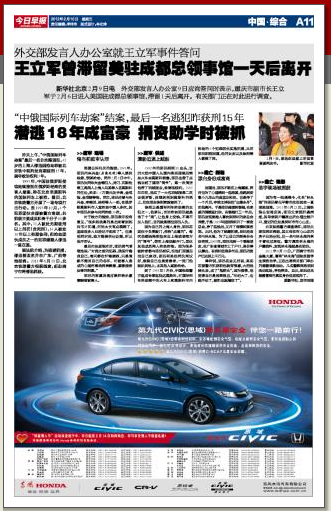
[ABOVE: The Xinhua release on Wang Lijun makes page 11 of the February 10, 2012, edition of Today Morning Express.]



















